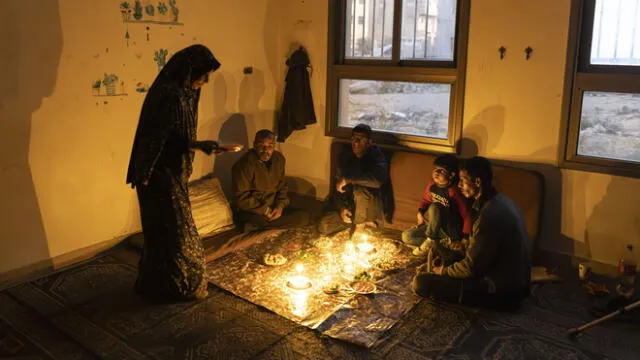Israeli Minister confirms plan to halt power supply to Gaza
Israel’s energy minister Eli Cohen confirmed on Sunday that electricity supply will be cut off, escalating pressure on Hamas to release the remaining Israeli hostages. The move follows Israel’s previous block on relief efforts and threatens Gaza’s already fragile infrastructure.

Israel has taken a significant step by cutting off electricity to the Gaza Strip, a move aimed at pressuring Hamas to release Israeli captives. This decision, confirmed by Energy Minister Eli Cohen, is part of Israel's broader strategy to force the militant group to comply with demands for peace and prisoners’ release. Cohen stated that the country would use all available tools to ensure the abductees' return, and this action forms part of an ongoing effort to diminish Hamas's presence in Gaza.
The ongoing war has devastated Gaza’s infrastructure, and this latest step will impact essential services, especially desalination plants which provide clean drinking water. The Israeli government has hinted that it could extend these measures to water supplies, further deepening the humanitarian crisis. Critics, including the United Nations, have condemned the actions, warning that halting vital resources amounts to collective punishment against civilians.
Why did Israel decide to cut off Gaza’s power supply, and what are the consequences?
Energy Minister Eli Cohen declared Israel’s resolution to stop Gaza’s electricity, stating, “I have just signed the order to stop supplying electricity immediately to the Gaza Strip.” This move is part of Israel’s larger plan to exert pressure on Hamas. Cohen emphasized that the goal is clear: “We will use all the tools at our disposal to bring back the hostages and ensure that Hamas is no longer in Gaza the day after [the war].”
The impact of this ruling is expected to be severe, especially for Gaza’s desalination plants, which are vital for providing clean drinking water to the region’s two million residents. Cohen’s announcement follows Israel's earlier actions to cut off food and medical care, intensifying the tension on the Islamist organization.
What are the stakes in the latest ceasefire talks between Israel and Hamas?
The halting of Gaza’s electricity supply comes at a critical moment as Israel and Hamas engage in renewed armistice negotiations. Despite a fragile truce that ended on March 1, Israel seeks to extend the pause in hostilities, while Hamas demands that the next stage of discussions prioritize the release of prisoners and the withdrawal of Israeli forces. Hamas has stated it holds 24 living captives and the bodies of 35 others, fueling the urgency of these exchanges.
As Israel manages increasing international backlash for its blockade-like actions, the focus is on compelling Hamas to adhere to the terms. The toll of the battle has been devastating, with over 48,000 Palestinians reported dead, according to Gaza’s Health Ministry, alongside significant Israeli losses. As both parties continue their dialogue, critical issues like the liberation of detainees and the governance of Gaza post-conflict remain unresolved.












